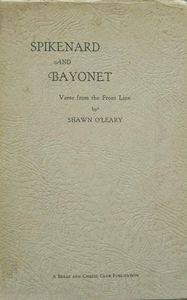New transl. from the Ancient Greek.
The poetry of the archaic period that the Greeks called iambic is characterized by scornful criticism of friend and foe and by sexual license. The purpose of these poems is unclear, but they seem to have some connection with cult songs used in religious festivals--for example, those honoring Dionysus and Demeter. In this completely new Loeb Classical Library edition of early Greek iambic poetry, Douglas Gerber provides a faithful and fully annotated translation of the fragments that have come down to us.
Archilochus expressed himself in colorful and vigorous language. Famous throughout antiquity for his winged barbs, he is often considered the archetypal poet of blame. Other major poets in this volume are Semonides, best known for a long misogynistic poem describing ten types of wives; and Hipponax, who was much admired by the poets of Hellenistic Alexandria, in part for his depictions of the licentious and seamy side of society.
Archilochus c. 680 BC-c. 645 BC) was a Greek poet and supposed mercenary
Probably the most complete translation of archilochus
The details of his life are inferred from his poetry
Colonized Thasos; was part of general ‘colonization’ efforts of his era (750-550 B.C.;______ 2) Was a mercenary soldier by profession—typical of many landless, rootless ‘younger’ or illegitimate sons (no inheritance) in Archaic Greece, when ‘overpopulation’ was a major problem. 3) Was a ‘Lyric’ = ‘personal’ topics, poet; the 1st of the known Lyric poets, who broke with Homeric Epic poetry style to write of their own lives, experiences, feelings, attitudes.
In the historical and poetic imagination, Archilochus represents the romantic intersection of the fighting and the poetic spirits; this dual aspect of his personality is captured with brevity in the following poetic fragment, wherein he describes himself as both a warrior and a poet:
Although I am a servant of Lord Enyalios [Ares, god of war],
I also know well the lovely gift of the Muses.
Alternate Translation:
I am two things: a warrior who follows Mavors lord of battle
And a poet, who understands the gift of the muses love.
Thirty lines of a previously unknown poem in the elegiac meter by Archilochos describing events leading up to the Trojan War, in which Achaeans battled Telephus king of Mysia, have recently been identified among the unpublished manuscripts from Oxyrhynchus and published in The Oxyrhynchus Papyri. Volume LXIX. (Graeco-Roman Memoirs 89.) by N. Gonis, D. Obbink, et al.
